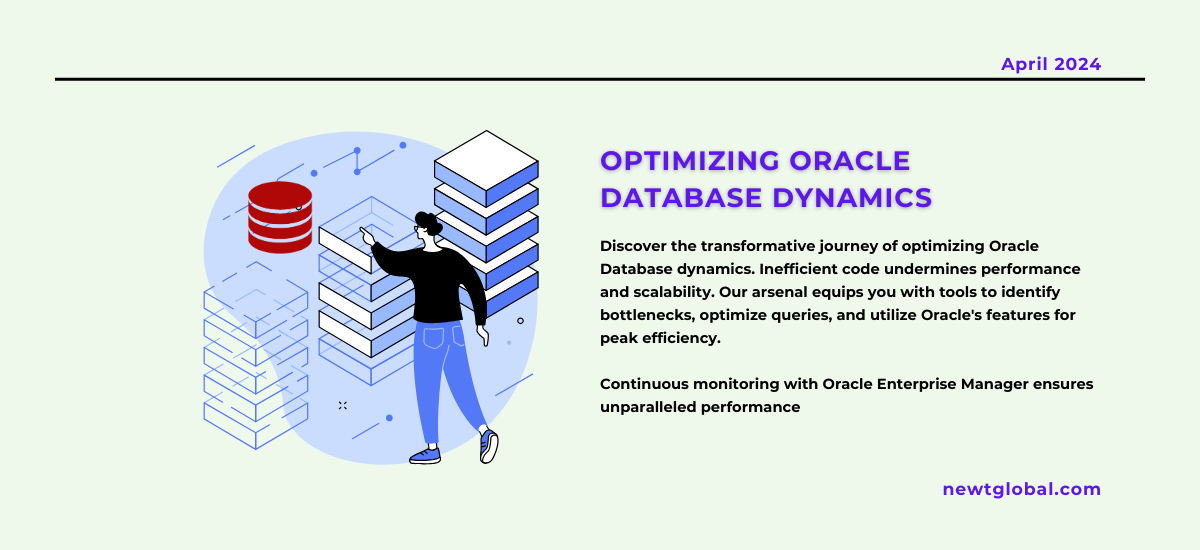
In the world of making computer programs, how well your database works is super important for how good your application works. Oracle Database is really good at handling lots of data, but it can struggle if the code that talks to it isn’t efficient. This guide will help you figure out how to make Oracle Database work at its best.
Problems with Bad Code
Bad code makes your database slow down. This causes problems like slow answers to questions, using up lots of computer power, and doing too much reading and writing. These issues aren’t small—they can make your app hard to use, cost more to run, and stop it from growing. This guide will help you find and fix the parts of your code that are slowing things down using tools like Oracle’s SQL Developer and Automatic Workload Repository (AWR) reports.
Improving Database Performance with AWR
AWR reports are like a guidebook for how well your Oracle Database is doing. They collect and analyze important data to show you how healthy your database is. By looking at these reports, you can see when your database is busiest, find trends in its performance, and figure out which parts of your code need fixing.
Making Better SQL Queries
Once you know which SQL queries are causing problems, you can make them work better:
-
- Use Indexes Smartly: Indexes help speed up queries by organizing data better. Avoid reading too much data by using indexes wisely.
- Avoid Full Table Scans: Reading entire tables slows things down. Use indexes to jump to the data you need quickly.
- Optimize Your Joins: Connect your data smartly using indexed columns and arrange tables carefully to reduce the amount of data processed.
- Be Precise with Data: Only ask for the data you need. Asking for everything can overwhelm your database for no reason.
Using Oracle’s Tools
Oracle Database comes with many tools to help you:
-
- PL/SQL Function Result Cache: This tool saves results from PL/SQL functions, making repeated calls faster.
- Advanced Compression: Reduces the size of data and speeds up queries by cutting down on reading and writing.
- Partitioning: This organizes large tables into smaller parts, making queries faster by focusing on just what’s needed.
- Improving Over Time
Making your Oracle Database work well isn’t something you do once; it’s an ongoing process. Oracle Enterprise Manager (OEM) helps by keeping an eye on things and giving you real-time data about how your database is doing. It’s like your central control hub, helping you see what’s going on and make things better.
Conclusion
Bad code can really hurt your Oracle Database and your app’s performance. By following these steps to fix SQL queries, using Oracle’s tools, and always looking for ways to improve, you can make sure your database runs as smoothly and efficiently as possible. Remember, it’s a continuous process, so keep monitoring and fine-tuning to keep things running great.
Discover how to unlock the full potential of your Oracle Database with our expert guidance.
Learn proven strategies to optimize performance and scalability, tackle inefficiencies, and harness Oracle’s powerful tools for database management. Ready to revolutionize your Oracle Database performance? Dive into our comprehensive guide at Newt Global’s website newtglobal.com. For further inquiries or assistance, reach out to us at marketing@newtglobalcorp.com.
Newt Global DMAP is a world-class product enabling mass migration of Oracle Db to cloud-native PostgreSQL, faster, better, and cheaper. Unlock the power of your database today!
